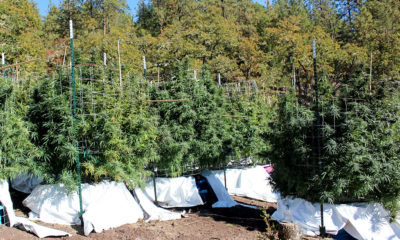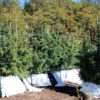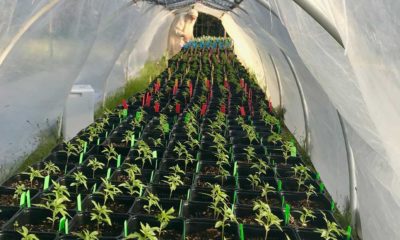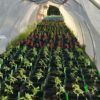
Legal
The Netherlands Moves to Legalize Growing Pot
Amsterdam’s black market has been thriving thanks to the Netherlands’s convoluted legal system, where coffeeshops can sell cannabis, but can’t grow it. This year, 10 Dutch regional governments will experiment with legalizing marijuana farming.
The Netherlands has long had an uneasy relationship with its famous and reliable tourism draw: the coffeeshops in Amsterdam and other cities allowed to sell small amounts of marijuana.
Generations of Americans, Britons and other refugees from prohibitionist countries mired in the War on Drugs have ventured to the European country for cannabis-soaked spring breaks, stony summer vacations or mind-bending sojourns of interminable but absolutely much longer length.
Some of the impetus for European vacations centered around a visit to a coffeeshop has evaporated since American states began legalizing the use and commercial sale of non-medical marijuana. And Dutch authorities briefly flirted with writing tourists out of its domestic marijuana trade, introducing a so-called “weed pass” that restricted coffeeshop visits to Dutch nationals only. (In an ongoing act of civil disobedience combined with only-in-Europe laxity, coffeeshops in Amsterdam ignore that restriction, and the police shrug their shoulders and worry about other things.) But the coffee shops are still there and still smoking — and dealing with a troubling conundrum.
Coffeeshops can sell marijuana, but they aren’t allowed to produce it. Since the cannabis has to come from somewhere, and since growing marijuana is illegal, coffeeshops’ solution to their supply paradox is obvious: They buy marijuana on the black market, which means patronizing criminals involved in “harder drugs,” as the Guardian observed.
The potential for abuse via the “backdoor” is obvious. “Production now is dominated by organized crime syndicates,” said Paul Depla, mayor of the southern Dutch city of Breda, in comments to the newspaper. “We have got a bankrupt system.”
Luckily, there’s a simple workaround for this problem, too: Legalize cannabis production. As the Guardian reported, the notion has occurred to “at least 30 companies,” all of whom have expressed interest in producing marijuana for coffeeshops with official government approval.
Beginning this year, as many as 10 regional governments in the Netherlands will experiment with regulated marijuana production. They’ll then report back to the central government, which may recommend widespread adoption of regulated domestic cannabis cultivation.
About two dozen cities have leaped at the chance to enter the marijuana space and are floating various plans.
They include allowing companies and medical firms to produce cannabis, eliminating coffeeshops altogether and allowing customers to buy weed online, adopting a model similar to first-generation medical cannabis clubs seen in the United States and leaving production to coffeeshop “members” — or leaving production up to the coffeeshops themselves.
While the country still stands mostly alone in allowing adults to purchase cannabis without worry of arrest, the Netherlands’ experiment with marijuana is in line with other countries. In Italy, medical marijuana patients can access cannabis grown for them by the military. In Switzerland, cannabis users can patronize storefronts that take advantage of a loophole in that country’s law that legalizes the production, use and sale of low-THC, high-CBD cannabis.
Moving to a legitimate supply model would seem to be the natural progression for Dutch cannabis cafe culture — and once adopted, a move that will leave most observers wondering what took so long.
TELL US, do you think the Netherlands should legalize growing cannabis?
























